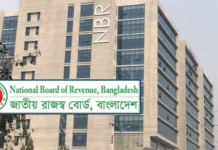His remarks came in a review session on “What Impact Will Pandemic Have on SDGs Delivery in Bangladesh?” organised by the Citizen’s Platform for SDGs, Bangladesh on Thursday, in the capital.
Debapriya Bhattacharya said without credible and updated data, policy focused on which level, for whom and where cannot be determined. As a result of this, Bangladesh’s sustainable development goals (SDGs) achievement will be given in the right point and right places.
The programme also proposed tangible policy measures, particularly in view of the upcoming national budget of 2022-23 FY.
Debapriya said SDGs achieving progress slips the target due to the fallout of Covid-19 pandemic and data dearth as well as non-credible information.
The data of government entities even faces credibility problems as those are not being matched with different economic and social context which needs reform first to implication of policy, he said.
Debapriya, also the convener of Citizen’s Platform for SDGs, Bangladesh, in his keynote presentation, shared the findings of a study conducted by the Citizen’s Platform, which assessed the impact of Covid-19 on the delivery of SDGs in Bangladesh from the perspectives of the disadvantaged population groups.
The immediate focus must be on protecting the purchasing power of the disadvantaged people by controlling the cost of basic living and enhancing income opportunities.
The government should immediately reduce duties, tariffs and taxes to make prices of essentials more affordable and provide access to basic commodities at “fair prices” by expanding open market sales (OMS) operations of TCB.
The government should expand public works, social protection programme and food assistance and increase the tax rebates for job creation. Public resources will need to be redirected for subsidy to protect prices of electricity, fuel, food and fertiliser, stated in the paper.
Debapriya further said given the resource constraint, the government will need to use public money under ADP more efficiently and accelerate investment in the rural public health system and address education loss, he said.
“The upcoming national budget of FY22-23 should be designed in the context of following recent developments which threaten to raise vulnerabilities of the disadvantaged. Overall policy approach should be towards using SDG as a framework for post-pandemic recovery by prioritising public expenditure on education and health in view of Covid losses. Additionally, the SDG tracker should be updated urgently,” Debapriya stated.
Professor Mustafizur Rahman, core group member, Citizen’s Platform for SDGs, Bangladesh and Distinguished Fellow, CPD, discussed social protection and has demanded to expand the social safety net adequately in urban and peri-urban areas. To this end, lack of data and information is obstructing the government to reach the people in need.
Ahmed Mushtaque Raza Chowdhury, another core group member, Citizen’s Platform for SDGs, Bangladesh and Convener, Bangladesh Health Watch (BHW), Zakir Hossain, Chief Executive, Nagorik Uddyog, Reefat Bin Sattar, Director – Programme Development and Quality, Save the Children in Bangladesh, Syeda Rizwana Hasan, Chief Executive, Bangladesh Environmental Lawyers Association (BELA), Dr Mostafizur Rahaman, Program Manager, Campaign for Popular Education (CAMPE) on Education, Khandekar Jahurul Alam, Executive Director, Centre for Services and Information on Disability (CSID) on Rights of Persons with Disabilities, Raju Bashfor, General Secretary, Harijan Oikya Parishad, Thakurgaon District on Dalit, Anisatul Fatema Yousuf, Coordinator, Citizen’s Platform for SDGs, among others, spoke at the function.










